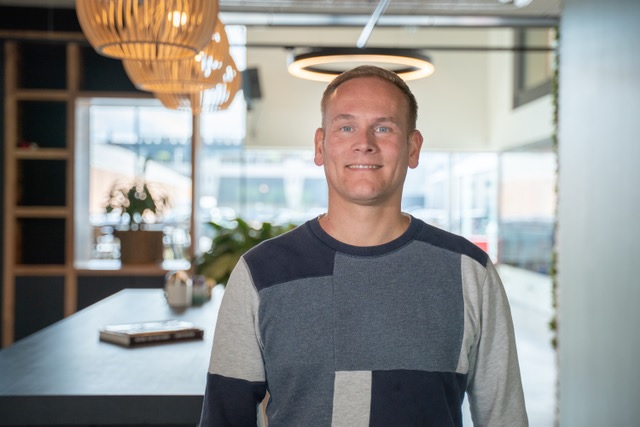Chris Obdam, CEO, Betty Blocks
In the last couple of years, a new sector has emerged alongside enterprise financial organisations—an ecosystem of fast-growing Fintech startups that develop innovative solutions for the banking sector. These small, flexible startups and scale-ups began filling a gap the ‘big boys’ left quite some time ago. Then, they gained even more ground during the pandemic. According to KPMG, Fintech investments worldwide amounted to $98 billion USD in the first half of 2021, compared to $121.5 billion over the whole of 2020[1].
The massive surge has financial regulatory bodies scrambling to balance the benefits of modernising the industry with the necessity of strong oversight. But, what if traditional financial enterprises could combine their durability, reliability and years of experience with the flexibility of a startup? They can! More and more enterprise organisations are becoming agile, empowering digital-savvy colleagues and improving competitive value.
Fusion teams
Their approach? They break through patterns and almost literally through walls in their organisation. The most successful organisations team up with genuine problem solvers. It’s a solution-oriented approach, which can be really successful if governed the right way. We like to call it a fusion team, a team that empowers digitally-skilled and solution-oriented employees to work side-by-side with the IT department while using a low-code and no-code development platform.
Citizen development
A fusion team brings together people with diverse professional backgrounds who use data and technology to achieve shared business outcomes. Ideally, a fusion team combines pro-developers with citizen developers. A citizen developer is a business person without coding experience that builds apps using a no-code or low-code platform.
The purpose of the professional developer, in a fusion team, is not to train the citizen developer to become a pro-developer but to bring guidance and governance to the project. Before building successful software, a fusion team will require knowledge and guidance through the software development life cycle (SDLC) phases. IT feedback is crucial to helping a fusion team understand what makes good software and how new platforms can (or cannot) integrate into an existing system. Citizen developers should receive coaching to make decisions that lead to architecturally sound, value-adding applications.
What are the challenges that a fusion team can tackle?
- Modernisation of legacy systems. Many banks have been around for years, expanded their software, but regularly have to deal with legacy systems or even a vendor lock-in.
- Regulations can change fast; that’s why financial organisations need to increase flexibility and improve adaptability. A flexible layer on top of core systems or legacy systems can profit the whole organisation.
- Counter shadow IT. Thousands of employees means that a lot of solutions are single handedly-built. All these solutions can be beneficial for the employees and even for your customers, but the thing is that they are not checked and governed by IT. For example, you run the risk that they are not meeting all your security requirements.
- Digitisation of processes, like the onboarding process for customers, is still a long paper process within financials. What if this could be 100% digital and automated? This could save you a lot of repetitive work, energy and money.
Create an environment for innovation
Banks tend to have difficulties setting up the right conditions to empower the workforce to innovate towards the future. Our first reaction to possible security risks is to impose more rules and restrictions, while the solution lies in a coaching attitude, independent of strict regulations. You can empower digital transformation by using a no-code or low-code platform.
A fusion approach encourages better software governance, allowing IT to help mitigate the risks of shadow IT projects. With a no-code or low-code platform, you can combine existing secure systems, extract data more efficiently, effectively communicate and convey between systems and thus better manage qualitative information. Governance is not a simple process or a task to check off and forget about; the essential governance feature for low-code or no-code development is a platform provider with the flexibility to adapt to specific needs of an enterprise. The provider should be a partner in expanding the role of citizen developers within the organisation.
Taking the leap into no-code software development with a fusion team will empower the entire organisation in digital transformation. It’s a strategic move that helps enterprises become more resilient against unexpected challenges – such as a pandemic or new consumer demands. Furthermore, you create a modern and innovative working environment with digitally-capable and engaged employees.
[1] Source: KPMG:
https://home.kpmg/nl/en/home/media/press-releases/2021/09/record-fintech-investeringen-in-eerste-helft-2021.html







